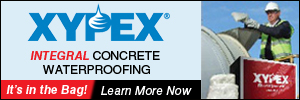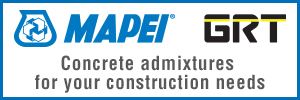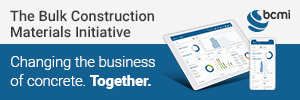 |
||||||||||||
|
||||||||||||
|
Learning & Development
The Department of Labor has launched an interactive online tool to help employees determine if they qualify for paid sick leave or extended family and medical leave to cover time away from work for reasons related to the coronavirus. The tool guides workers through a series of questions to help them determine if the paid leave provisions of the Families First Coronavirus Response Act (FFCRA) apply to an employer. If the provisions do apply, the tool helps them learn whether they qualify for either paid sick leave or extended family and medical leave under that law. The partnering tool for employers will launch in the near future. The Families First Coronavirus Response Act (FFCRA) reimburses American private employers with fewer than 500 employees with tax credits for the cost of providing employees with paid leave taken for specified reasons related to COVID-19. The law enables employers to keep their workers on their payrolls, while at the same time ensuring that workers are not forced to choose between their paychecks and the public health measures needed to combat the virus. The Department’s Wage and Hour Division administers the paid leave portions of the FFCRA. The FFCRA requires qualifying employers to provide employees with up to two weeks of paid sick leave if they are unable to work or telework due to a federal, state or local quarantine or stay-at-home order. Employees are also eligible if a healthcare provider has advised them to self-quarantine for reasons related to the coronavirus or are seeking diagnosis for coronavirus symptoms. Paid sick leave may also be available to workers caring for someone subject to a quarantine order or self-quarantining based on a healthcare provider’s advice, or caring for a child whose school, place of care or child care provider is closed or unavailable due to the coronavirus. Up to 10 additional weeks of expanded family and medical leave is available for workers forced to miss work to care for their children because the pandemic has closed or made unavailable their school, place of care or child care provider. The link to the tool can also be found on NRMCA’s COVID-19 Resources page. For further questions, please contact Eileen Dickson at edickson@nrmca.org.
Association & Industry News
Due to state and county restrictions in Colorado, and with the health and safety of our members and staff as a top priority, NRMCA has made the difficult decision to move ConcreteWorks 2020 from an in-person conference to a virtual format. The current plan is to conduct the event over similar dates at the end of September; an announcement will be made once those dates are finalized. The virtual event will be comprised of NRMCA committee meetings, education sessions, general sessions featuring dynamic keynote sessions on the latest political and economic issues that face our industry, and a virtual exhibition allowing members to continue to connect and conduct business with vendors. In lieu of a National Mixer Driver Championship this year, NRMCA will conduct a Mixer Driver Appreciation Week; details will be forthcoming. Now more than ever, it is important to remain engaged and informed on industry issues. Conducting the event virtually allows us all to continue to connect with industry peers and will also allow for attendees who normally cannot participate in the in-person event to attend and engage with the industry. The schedule of events, registration, sponsorship and exhibition opportunities will be available soon. On behalf of NRMCA, thank you for your understanding, patience and continued support. We encourage you to attend the NRMCA’s ConcreteWorks 2020 Virtual Conference. For more information, contact the NRMCA meetings department at 703-706-4852. Over the past weeks, some of you have received a request from NRMCA staff to engage with Build With Strength and Pave Ahead on LinkedIn. If you don’t already follow these pages, we hope you will do so now. Many of you are already active on social media, creating and sharing excellent content with your employees, customers and others. You probably already have a personal LinkedIn profile. Your companies and your state associations likely have profiles as well. But we must begin to more deliberately and strategically utilize those profiles to promote the concrete brand. Engagement means using these existing profiles to post and share content that will elevate your organizations and raise the visibility of our entire industry. This is free to do. It is also easy to do with only minimal effort required. For us to be successful this work must involve all of us. Right now, LinkedIn offers us the best possible channel to reach our target business-to-business audiences and remind them that concrete remains the best material for their upcoming paving and building projects. We can emphasize that concrete is always the local material and that our companies and personnel work tirelessly to support our communities. We can utilize this platform to announce job openings. Many of you are doing all of this and more. We can and should post project pictures and videos whenever possible. Every time you do that we ask you to tag Build With Strength and Pave Ahead by adding the @ before those names. When the name highlights – you know the tag is successful. This is an easy step that will have great downstream benefits for our members and the industry as a whole. The concrete industry needs all of us to become more engaged in this effort. Whether we are talking about strength, durability, resilience or sustainability, each of us has a role to play in amplifying that message. Use hashtags with the words above to move the needle further in our direction. The more of us that are actively promoting these messages – the more likely it is that we can improve our industry’s visibility and the awareness of all that we have to offer our customers, our communities, and those who specify our products: #BuildWithStrength #PaveAhead For more information contact Gregg Lewis at 540-529-3893 or glewis@nrmca.org.
Buildings
Last week, Mississippi Governor Tate Reeves signed into law legislation that amends an existing section of the state building code that requires insurance companies to offer a discount or rate reduction to residential building owners who build new construction to hurricane and windstorm-resistant standards. The same discounts and rebates will now be available for those that meet resiliency standards in commercial construction. The bill will encourage the commercial construction industry to build properties that are more resilient to hurricanes, tornadoes and other natural disasters in order to mitigate loss. Build With Strength (BWS), a coalition of the National Ready Mixed Concrete Association consisting of community organizations, fire safety professionals, engineers, architects and industry experts, supports lawmakers and communities across the U.S. who encourage more resilient construction practices through legislation. BWS works with communities, lawmakers and industry employees to advocate for safer, sustainable building materials. Strengthening local and national building codes is among the organization’s top priorities. “This is a significant piece of legislation for the people of Mississippi, especially given the growing prevalence of natural disasters in our state,” said Joel Waters, executive director of the Mississippi Concrete Association. “The damage inflicted by tornadoes, hurricanes, flooding, etc. cannot be prevented entirely, but we should be doing everything in our power to lessen the blow. Building more resilient structures plays a significant role in mitigation efforts and the hope is that this will lead to safer communities across the state.” The bill is the first of its kind in the U.S. in its application to commercial structures. The increase and severity of natural disasters is requiring states and localities to examine existing law relative to construction practices in order to minimize damage in local communities. For more information, contact NRMCA Senior Vice President of State and Local Government Affairs John Loyer at 703-675-7603 or jloyer@nrmca.org. The Ready Mixed Concrete (RMC) Research & Education Foundation recently released a new research report, titled Impact of Extended Time to Discharge on Concrete Durability and Performance. The research was performed by the New Jersey Institute of Technology (NJIT) and was co-funded by the Portland Cement Association (PCA). It is estimated that on an annual basis, approximately 3% of ready mixed concrete produced is returned to the concrete plant for disposal. One of the reasons that concrete is rejected at a project site is the 90-minute time limit to discharge a load in accordance with ASTM C94, Specification for Ready Mixed Concrete, that is enforced by specifying agencies. Although the standard provides conditions where this time limit can be waived, loads of acceptable quality are rejected, resulting in lost revenue and cost to the producer to manage returned loads. NJIT researchers evaluated properties of concrete mixtures designed for a longer discharge time. Acceptable results were observed for all fresh concrete and durability indicator test results, such as resistivity and freeze-thaw durability, for concrete specimens prepared from samples obtained at different times up to 150 minutes. In the report, NJIT researchers conclude that the current discharge time limits and specifications are conservative and should be reexamined. The full report is available from the RMC Research & Education Foundation, both on the homepage under What’s New from the Foundation and on its Concrete Applications page. The MIT Concrete Sustainability Hub (CSHub) recently held a public webinar titled Resilience for Sustainability that attracted more than 100 decision-makers and influencers on the subject. MIT CSHub Faculty Director Franz-Josef Ulm shared recent developments in quantifying the resilience of buildings with respect to a number of extreme events, including hurricanes, precipitation flooding and wildfires. Key findings of largescale simulations combined with economic and social census data and modeling were shared, which all show that resilience is not a commodity but an integral condition for the sustainable development of our societies. A recording of webinar is available at Resilience for Sustainability. Click here to register for e-mail alerts about future webinars and view the full series of MIT CSHub public webinar recordings. As a leading Environmental Product Declaration (EPD) program operator for the concrete industry, NRMCA recently verified two EPDs by Associate member Lehigh Cement. The EPDs report the impacts for three different cement products produced at Lehigh’s Delta, BC and Bellingham, WA, facilities. Verified cement products included:
The trend in reporting environmental, social and governance practices is growing and, with environmental impact criteria being discovered in green building construction documents and specifications, procurement decisions are leaning beyond price and performance. Increased business opportunities in the future will occur when raw material suppliers demonstrate a lower embodied carbon for their customers. Lehigh’s EPD was developed by Climate Earth and independently reviewed by Athena Sustainable Materials Institute. To date, the North American ready mixed concrete industry, including material suppliers, has invested into 80 verified EPDs with more than 20,500 products/mixes and is the leading material industry that reports environmental impacts. Integral to the Build With Strength campaign, NRMCA promotes Strength Through Transparency for member and industry competitiveness in the green building marketplace and the trends toward product and company transparency. NRMCA-verified EPDs can be found here. For support, training, sustainability strategy planning or program development, please contact James Bogdan at jbogdan@nrmca.org or 412-420-4138. This Build With Strength (BWS) advocacy report summarizes activity related to the COVID-19 pandemic, including details of a new advocacy effort and webpage, Construction is Essential. Click here to access the June 2020 advocacy report. For more information, contact John Loyer at jloyer@nrmca.org. SEO
Late last week, the Occupational Safety and Health Administration (OSHA) announced a new compliance directive establishing “uniformity in inspection and enforcement procedures when addressing respirable crystalline silica exposures in general industry, maritime, and construction.” This new directive is aimed at clarifying, for employers and inspectors alike, how OSHA’s silica standard will be enforced. As per OSHA, the new directive covers uniform compliance covering the various silica requirements and details new, specific instructions on how inspections will be conducted in a number of compliance areas, including:
Click here to review the OHSA press release and here to review the compliance directive. For more information, contact Kevin Walgenbach at kwalgenbach@nrmca.org. Does your facility need to report to the Toxic Release Inventory (TRI) Program? Have you run the calculations to determine if your facility does? Do you know what the requirements are and/or how to report if necessary? Now’s the time to obtain answers to all of these questions. Remember, the Environmental Protection Agency’s (EPA) TRI Program “tracks the management of more than 650 toxic chemicals that may pose a threat to human health and the environment.“ Specifically, “U.S. facilities in certain industry sectors must report annually how much of each chemical is released to the environment and/or managed through recycling, energy recovery and treatment.” This information is then submitted annually to EPA and compiled in the TRI. Facilities that handle toxic chemicals, including ready mixed concrete plants, are required to calculate the quantities that were handled and, if any quantity is over an allowable threshold, that chemical and amount need to be reported under the program. Should a facility need to report, the reporting deadline is today, July 1. Click here for more information on the program, including listed chemicals, potential for reporting and when/how to report. For more information, you may also contact NRMCA's Gary Mullings at gmullings@nrmca.org or Kevin Walgenbach at kwalgenbach@nrmca.org. Close out June Safety Month by having staff view NRMCA’s latest Safety Series video, Ready Mixed Concrete Plant Safety. The 15-minute lesson covers all the consequential basics related to safety at a ready mixed concrete plant. Plant operators, yardmen, mechanics, concrete delivery professionals and visitors encounter activities that rival the hubbub of a small city, so basic safety procedures must be followed at all times. This video helps them execute as it succinctly covers safety essentials from daily plant start-up to plant shut-down. Specifically, the lesson includes an overview of proper personal protective equipment, plant safety signage, general plant safety inspections protocols, lockout/tagout/tryout of power sources, inspection and repair of conveyors, confined spaces, dust collection systems and baghouses inspections, slips, trips and falls prevention and general plant housekeeping. The video was generously funded by the RMC Research & Education Foundation. Click here to view or download the video. For more information, contact Eileen Dickson at edickson@nrmca.org. Pavement
Recently, NRMCA’s Pave Ahead engineers Ken Justice, P.E. and Amanda Hult, P.E. joined the Concrete & Aggregates Association of Louisiana (CAAL) to present the Pervious Concrete Contractor Certification class to contractors in the Baton Rouge area remotely due to COVID-19 restrictions. With the passing of a local ordinance requiring pervious pavements, NRMCA has seen an uptick in demand for pervious concrete and a corresponding increased demand for certified contractors in the New Orleans area and surrounding parishes. “It is important that we educate all parties involved when it comes to this material, including owners, designers, contractors and maintenance crews," Hult said. "Providing in-depth education about what the product is, how it is used and installed can improve the quality of the pavement system on a project.” For more information on a Pervious Concrete Contractor Certification class, contact Amanda Hult at ahult@nrmca.org or the local sponsoring group for your state. Calendar
*Please note that e-mail and direct links to each event listed below can be accessed from NRMCA's Web site. July 14 – 16, Nashville, TN – Sponsored by TCA July 15, Online Course July 22, Online Course July 29, Online Course August 5, Online Course August 12, Online Course August 19, Online Course August 26, Online Course September 2, Online Course September 9, Online Course September 25 – 29, Denver October 5 – 8, Now Online! October 20 – 22, Mendota Heights, MN November 10 - 12, New Orleans November 17 – 19, Glendora, CA December 15, Charlotte, NC December 15 – 18, Phoenix |
||||||||||||













_Sept13.jpg)


